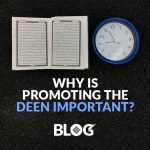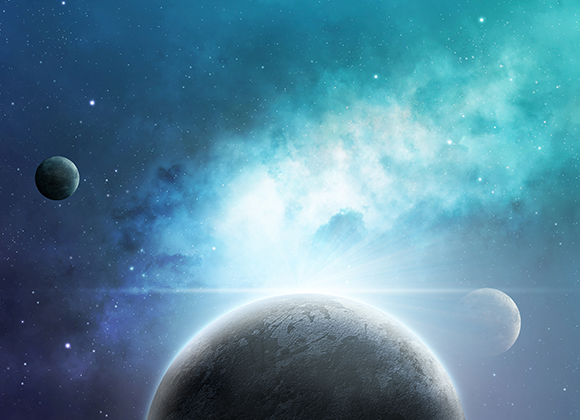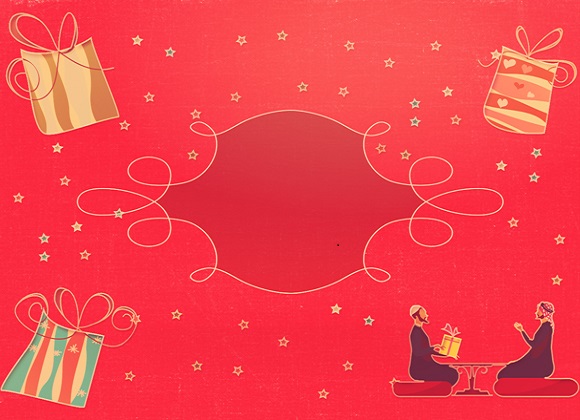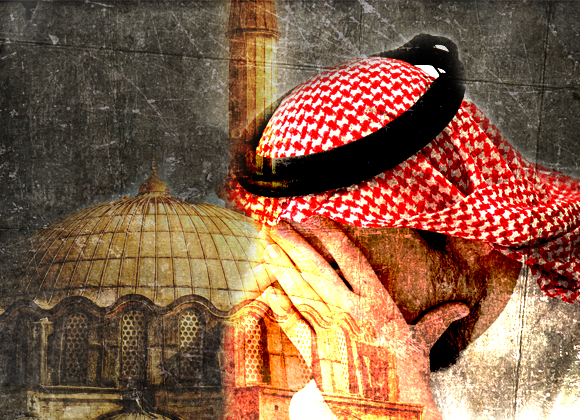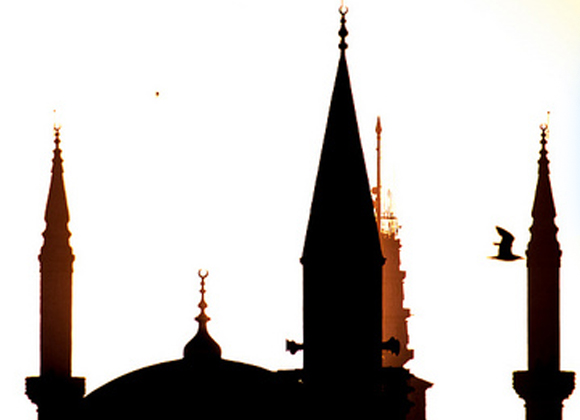
(continued from Part I)
His provisions had long since run out, and with the horror of a lone traveler in a strange unmarked desert, he realized that he was lost. His hunger was a sharp insistent pain within the pit of his stomach, his thirst a burning desire in his parched and swollen tongue. His bloodshot eyes, devoid of any tears to keep them moist and lubricated, were now a raking pain every time he blinked, and he knew that it would only be a matter of time before blindness begins to set in. The thought catapulted his panic and his instinctive reaction was to spur the camel to a faster trot. He got no response. The monotonous consistent hoof-beats of the beast when they had started out had now been reduced to an unsteady awkward shuffle of its exhausted limbs. He craned his neck to catch sight of any landmark in the horizon ahead, but all he could see was an unending sea of dunes stretching ahead to infinity…
He had been riding for three weeks now, and had survived the last three days without food. The sun lashed at him with the force of an ironsmith’s mallet, leaving him dazed and disoriented. His grip on the riding animal’s reins had slackened, so that his arms flopped lifelessly by his side. His tongue was a heavy lump of flesh that stuck to the upper palate of his mouth, thick and immovable like dried glue. His breathing became an energy-consuming laborious exercise, a croaking sound as he inhaled and exhaled hot air. He wanted to stop and surrender himself to oblivion. He tried to swivel his eyes in their sockets but the pain blinded him and filled the darkness that had begun encroaching on his vision with flashes of bright silver sparks. Within his emaciated body, the turmoil that had been raging incessantly for ten long years was now at its bloodiest, and he was shocked to find that the demons inside him showed no signs of the weakness that was eating away at him. He tried to scream in mortal anguish, to escape from the agonizing questions of the meaning behind his existence that were driving him beyond exhaustion, but the only sound he could emit was a dry rasping one, like that of a saw cutting into wood. He felt himself falling but made no move to shield himself from the impact. The sun-baked hard ground underneath did not cushion his fall, and he lay there immobile, waiting to die…
He awoke from his dead faint to the feel of something cold and soothing falling over him. It moistened his cracked lips and washed over his burning eyes. It continued falling over and around him, drenching his clothes and dousing the furnace of his skin. His disoriented mind struggled to comprehend what was happening to him, until the truth dawned on his tired mind. Rain. He cupped his hands to collect the precious liquid and drank, shuddering with ecstasy as he felt the cold trickle down his tortured throat. He raised himself weakly to sneak a peek of what lay ahead of him, but apart from a dull light low in the horizon, he saw nothing but endless desert.
‘God help me…God help me…God.’ The invocation to his Creator came as naturally as breathing, and he fell back again, completely exhausted. ‘God help me…’ This time the plea was more urgent, accentuated by the realization that the rain had stopped and he had not filled his small water-skin. Inside him, he felt the maddening question to which he had no answer, begin to slowly eat away at his reason, growing bolder with each passing moment. ‘Why do I live…what is the reason behind all this…’ The words stabbed at his intellect again and again, with increasing regularity, like the beat of his heart in its cage of ribs. He knew now that he was slowly surrendering to despair, and his last thoughts of how he had lived for absolutely nothing were cut short as his eyes closed of their own accord and he waited for a lonely death on an uncharted desert to overcome him.
Only then did his failing ears pick a strange sound, unlike any he had ever known before. It was a call, distant and clear, but to whom or what he did not know. All he knew was that it was beautiful to listen to, as grand as it was imposing. His mind shifted to the tiny point of light he had seen low in the horizon, and for the first time realized it had been too low in the sky to have been a star. He raised himself up again with infinite trouble and swiveled his head to stare eastwards. He focused his eyes and his jaw dropped when he finally comprehended what he was looking at. The sun was setting in the gathering dusk, and its fading light caught an imposing structure in the shimmering distance. Pointing to the heavens like a testifying finger, the tall slender minaret of the Great Mosque of Damascus rose majestically from the sea of immense desert that hugged it. Again, he heard the call wash over him in the shifting desert wind, rising and falling like a wave. It was the Muslim call to the evening prayer, a call to success, a call to salvation. Olev Karenin threw himself on the camel’s saddle and rode towards the sound….
The night had drawn a velvet cloak across the sky by the time he tied his camel and staggered onto the courtyard of the mosque, and he stood still, shocked at the sharp contrast of the immediate environment he now found himself in. He was standing in a huge quadrangle almost five hundred by three hundred feet wide, flanked by an arcade of double-tiered arches supported by slender columns. The arch openings in both tiers were of the same size and proportion, a geometrical precision that astonished and fascinated him in equal measure. Guarded by its minaret, the mosque’s imposing dome soared motionless above the rectangular structure, as if suspended from heaven.
On its outer walls was depicted an endless mosaic of an unearthly landscape with trees and their fruits, rivers with boats and elaborately designed palaces and pavilions, a paradise of gigantic trees and luxuriant foliage, and he felt his heart flutter in awe. He noticed that there was neither a bird singing on a tree nor a sailor in control of a boat, and was to learn later that this was due to the Islamic prohibition of representing human beings and animals. He crossed the immense courtyard illuminated by an unbroken rhythm of flaming torches mounted on the arcades, past the fountain of ablution and entered the dim prayer-hall. Even in the low light, he saw that the width of the hall was almost thrice its length and divided into three naves by ancient yet brilliantly decorated stone columns. The marble grilles that covered the windows were a breath-taking example of geometrical interlace. It was a splendid house of worship, built to dominate the surrounding landscape. It’s beauty entranced him, so that for a moment he forgot his gnawing hunger, staring about him like a man spellbound, not knowing whether he was in heaven or yet on earth.
He heard the slow monotone of a recital from the far end of the prayer-hall and for the first time, noticed a man sitting and reciting from a book with the aid of a lamp by his side. He drew closer to where he sat in solemn concentration and something stirred in his soul as he approached him. He was an old man, medium of stature and straight of back. He wore an old yet clean white cloak around his broad shoulders, his head moving almost imperceptibly as he recited from the text he held with infinite care in his wrinkled hands.
He sensed the approach of the stranger and looked up, and Olev Karenin saw the most angelic face he had ever cast his eyes upon. He did not quite know what he held most dear in that glowing face that was now smiling up at him, putting aside the sacred book with reverence and effortlessly rising to greet him, all he knew was that this must be the old man he had been advised to meet. He extended his slim hands in a warm and genuine show of friendliness, and his flaming white beard made him look like a character straight out of the Old Testament. Olev wanted to pour out the anguish of his troubled soul then and there, but his host would have none of it. Sensing the newcomer’s dire predicament from his haggard weather-beaten face and his distinctly observable ungainly walk, he retreated into an inner room within the hall and emerged minutes later with warm bread and curry. He kept him company until he had picked the last crumbs of bread from the clay plate, then spread out a makeshift bedding and watched over him until he fell into a dreamless sleep. Then the Shaykhul -Ulama of the Grand Mosque of Damascus offered two units of prayer and retired to bed.
Olev woke up to the sound of his host announcing the call to the dawn prayer and heard the first stirrings of life around him as bearded turbaned men crossed the vast courtyard and entered the mosque, greeting him in their native Arabic which he could not understand, but from which he could vaguely discern the words ‘Salaam’ before they hastened towards the Mihrab, a semicircular niche in the front wall of the mosque that indicated the direction of Kabah. He observed these people diligently, like an acclaimed author painstakingly studying the subjects of his essay, and he saw that their rituals were crowned with simplicity and exhibited none of the meaningless gesticulations that abounded within the church vicinity. They washed their hands, faces and limbs thoroughly at the fountain of ablution having already taken off their shoes, then made their way into the prayer-hall and recited the Holy Book, the Qur’an as they waited for the congregational prayer.
The venerable Shaykh Hamiduddin stood at the Mihrab, composed and solemn, a pious man who understood the weight of responsibility one entrusted with leading the prayer bears on his shoulders. He had as though, at the flick of a switch detached himself from the rest of humanity and now faced the Lord of the Worlds, as if this was to be his very last act before death took him away. He raised his hands as one who has willingly surrendered to his Creator, and Olev heard the next words distinctly. ‘Allahu Akbar.’ Behind him the faithful lined up in unison, shoulder to shoulder, toe to toe, so that it was impossible to distinguish the rich from the destitute, the property-owner from the cobbler. They raised their hands to mark the commencement of the prayer, and then a hush descended over the hall of the great mosque, before the Imam’s voice soared again. And when it did, it seemed to the open-mouthed Olev that he was reciting something from an otherworldly source.
It was in a clear Arabic tongue, flawless and unblemished, as if plucked straight from the ramparts of heaven itself. It pierced his beating heart like an arrow and settled there, an inimitable symphony that moved him to an indescribable ecstasy, then the anguish as he felt the arrow dislodge and his joy crumble as soon as the recitation ceased. He stared at the proceedings of prayer in rapt concentration, noting how the Muslims bowed, rose and prostrated all as one body, an unbroken harmony that impressed the foreign onlooker, like ranks of slaves together responding to a supreme order.
He witnessed the congregational prayer five times a day every single day, and he was already seeing a gulf of contrast between the followers of Islam and Christianity. For the former, religion was an intrinsic part of their daily lives, prayer and their daily preoccupations of earning a living were inter-woven, inseparable from each other. Shaykh Hamiduddin rejoined him with breakfast after the prayer, putting him at ease with questions about his native homeland, the well-being of the family and relatives he had left behind and what he did for a livelihood. These questions he posed to his guest in remarkably good English, hence dispensing with the need for a translator, which suited Olev since he was anxious that only the Imam should know the nature of his troubled soul.
And so it was that after their light morning meal, they sat together and he began to relate the terrible ordeal to his host in all its gruesome horrors. His concluding plea touched the revered Sheikh deeply. ‘I want to know why I live. Ten years I have searched and I have found nothing…ten years. I have searched in every corner of knowledge known to me. And I have seen nothing.’ His limbs shook like those of an epileptic, and he was visibly fighting back his tears. His fingers fumbled with his cloak one moment and the floor carpeting the next, a desperate man looking for an answer to still his decade-old disquiet forever.
To be continued…

